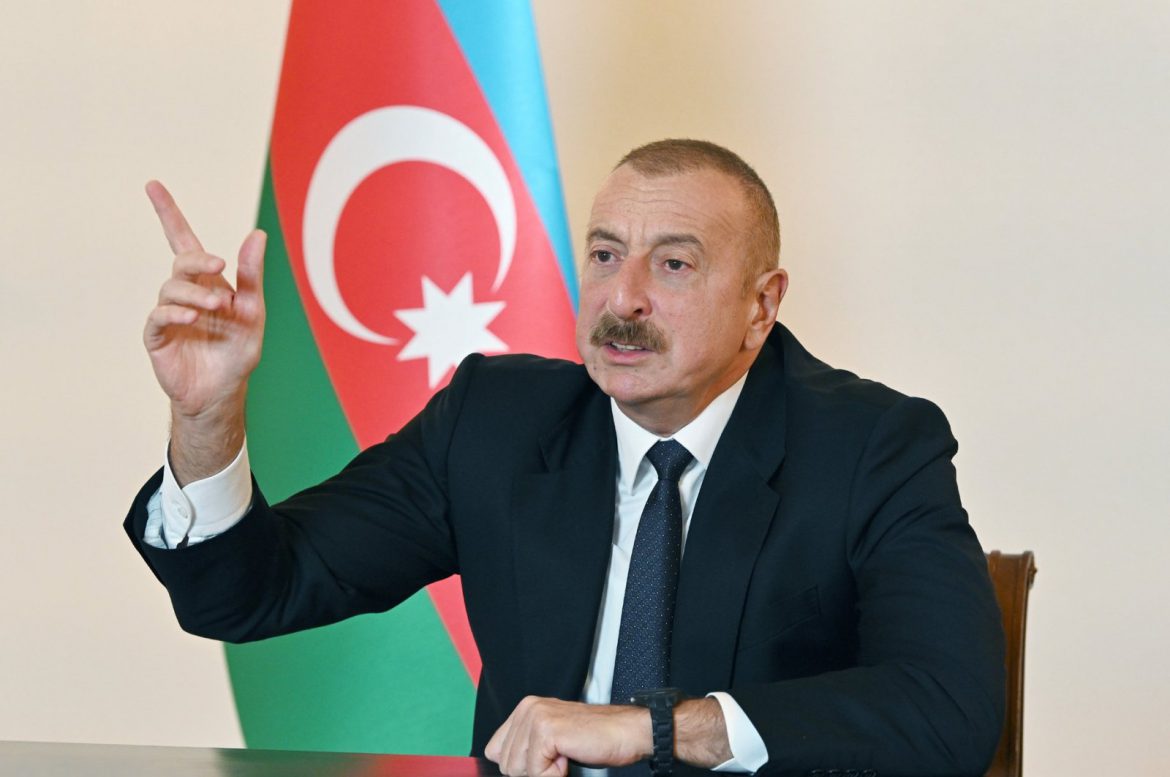Azerbaijani President Ilham Aliyev has reiterated his description of much of modern-day Armenia as “western Azerbaijan” and stated that Yerevan must ensure the safe return of ethnic Azerbaijanis who fled in the late 1980s.
“We are waiting for a clear statement from the Armenian authorities about how the inhabitants of Western Azerbaijan expelled from the current territory of Armenia or their descendants can return to their historical lands, visit, or live in those territories. Especially given that, according to our reliable information, 90 percent of the villages where Azerbaijanis lived are now empty,” Aliyev said at a “media forum” in the Nagorno-Karabakh town of Shusha (Shushi) over the weekend.
Aliyev has consistently referred to Yerevan and other parts of Armenia as “historical Azerbaijani lands” and has promised the eventual repatriation of ethnic Azerbaijanis who lived there during Soviet times. However, he and other Azerbaijani officials have not addressed the repatriation of at least 200,000 ethnic Armenians who lived in Baku and other parts of Soviet Azerbaijan, excluding Karabakh, until 1988.
Karabakh’s entire ethnic Armenian population was displaced less than a year ago due to an Azerbaijani military offensive that restored Baku’s control over the region. On Saturday, Aliyev again claimed that the Karabakh Armenians were not forced to flee their homes.
Aliyev’s latest demand to Yerevan comes amid ongoing discussions about an Armenian-Azerbaijani peace treaty. The Azerbaijani leader has made the signing of the treaty conditional on a change to Armenia’s constitution, which he says contains territorial claims to Azerbaijan.
In late April, Aliyev reaffirmed this condition after forcing Armenian Prime Minister Nikol Pashinyan to hand over four disputed border areas to Azerbaijan. Armenian opposition leaders strongly condemned this concession, arguing that Pashinyan’s appeasement policy will only encourage Baku to make further demands, rather than bring peace.
Under the terms of the controversial land transfer announced in April, the two sides were supposed to adopt joint “regulations” for delimiting other sections of the Armenian-Azerbaijani border by July 1. Pashinyan and his allies claimed this would lay the groundwork for Azerbaijan’s recognition of Armenia’s territorial integrity.
However, no such regulations have been agreed upon so far. Some of Pashinyan’s allies have echoed opposition claims that Baku remains reluctant to recognize Armenia’s borders and hopes to secure even more concessions from Yerevan.




